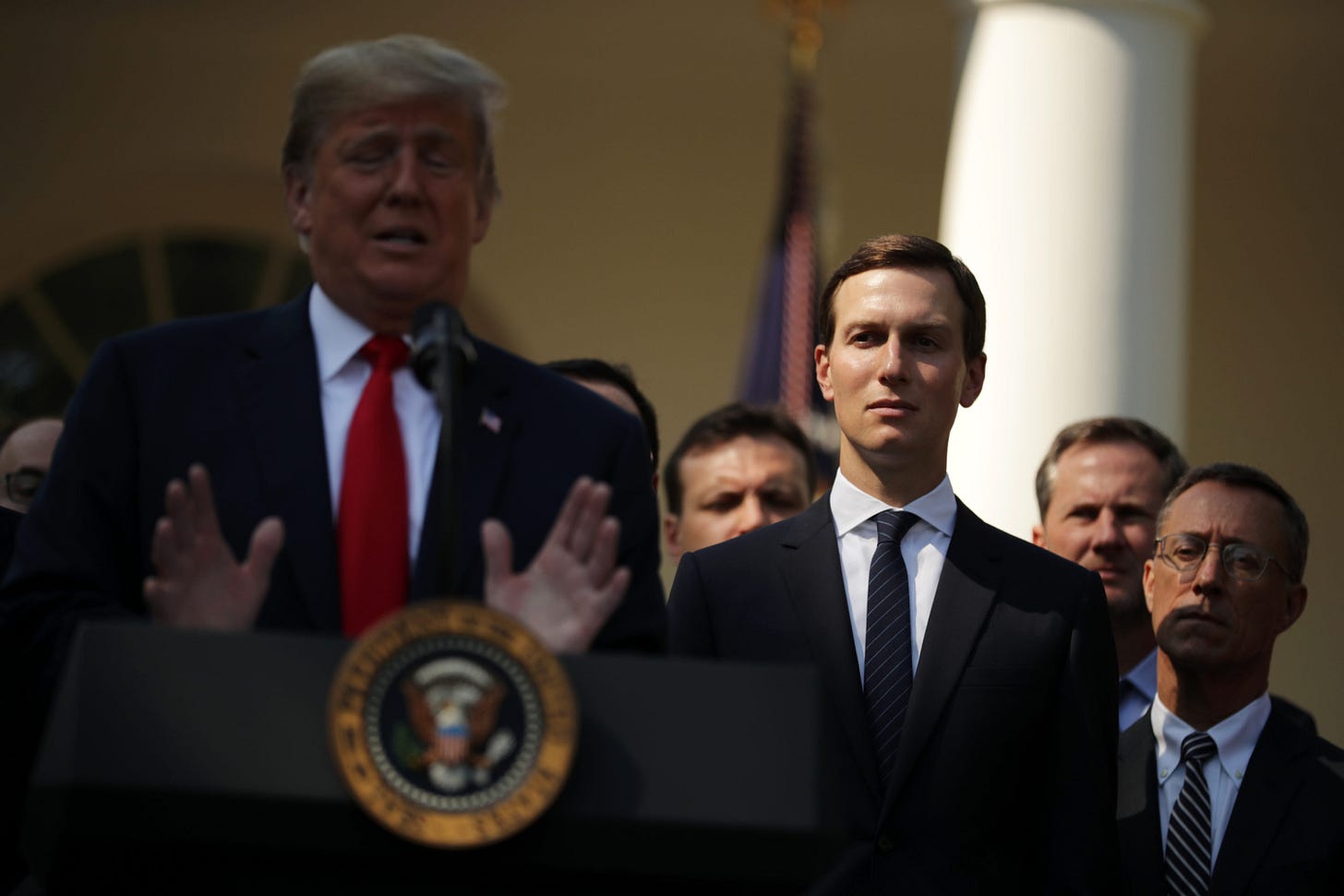Does the White House Care About National Security?
The man who campaigned against Hillary’s emails has a terrible track record for information security.

The White House is a massive national security liability. At least, that’s the only reasonable interpretation if it’s true, as the New York Times reported on Monday, that 25 people in the Trump administration, including Jared Kushner, had their security clearances denied by career officials before being overturned by unnamed administration figures.
A whistleblower from the White House Personnel Security Office told the House Oversight Committee that those individuals granted clearance included two senior White House officials. The witness, Tricia Newbold, also testified that credit checks had been suspended for all security clearance applicants, in a stark departure from normal practice.
Security clearances are designed to prevent espionage. It’s not enough that people who hold secret information are trustworthy; even public-spirited patriots can be compromised. The traditional reasons people betray national secrets are summed up in the acronym MICE: money, ideology, compromise, and ego. Trump administration officials, according to Newbold, had been denied clearances for “a wide range of serious disqualifying issues involving foreign influence, conflicts of interest, concerning personal conduct, financial problems, drug use, and criminal conduct.”
To predict and forestall opportunities for foreign exploitation, applicants for security clearances must disclose huge amounts of personal information. Some of that information is financial: Does an applicant owe debts that could make them an easy target for a bribe? This question is apparently no longer considered for White House employees, though it still is by other agencies granting security clearances, including the Defense Department, the Justice Department, and the intelligence community.
Financial information is just a small subset of the immense disclosure required of applicants. Applicants for national security positions, for example, have to fill out Standard Form 86, a 114-page questionnaire (longer when filled out) that asks potential clearance holders for everything from their college roommate’s middle name to the itineraries of any foreign travel in the past decade. The answers are investigated, referenced, double-checked, and any discrepancies are examined during an in-person interview and polygraph test. The entire process is repeated every five years.
The process is invasive, inefficient, and exhausting. Wait times for new applicants can run into the years, and the procedures across different departments and agencies are a mish-mash. Many clearances still rely on the polygraph test to check for “deception,” despite the questionable science behind it.
But what the system lacks in efficiency it makes up for in thoroughness. It gives the government every possible chance of preventing someone, intentionally or unintentionally, from disclosing classified information.
Because the clearance apparatus is based on a system first designed by Dwight Eisenhower in Executive Order 10450 in 1953, rather than a statute, White House Counsel Pat Cipollone is right that “the decision to grant or deny a security clearance is a discretionary function that belongs exclusively to the Executive Branch,” at least in a strict legal sense.
Unless Congress makes a law to the contrary, the president is entirely within his power to institute his own program, up to and including reviewing and adjudicating every clearance application himself. If he wants to bend the rules and overrule a few careerists, that’s his prerogative.
But it’s not good policy. The system, despite its flaws, keeps information relatively secure. Major breaches of information security, to the extent we know about them, are relatively rare considering nearly 600,000 security clearances were approved in 2017 alone. Without the clearance process, breaches like Edward Snowden’s would be much more common.
This is not the only example of the administration's security headaches. Advisers have implored Trump not to use his unsecured cell phone, especially after it was reported that Chinese and Russian spies can listen to the president’s phone calls, which sometimes include classified information. Jared Kushner, whose security clearance was initially denied, once asked to meet with Russian officials to attempt to set up a “back channel” of communication run out of a Russian secure facility. In an Oval Office meeting in 2017, Trump disclosed classified intelligence shared by the Israeli Mossad with the Russian ambassador. During the Fire and Fury phase of North Korean relations, Trump told Philippine president Rodrigo Duterte that the Navy had ordered two nuclear missile submarines to stand off the North Korean coast, even though the locations of American SLBMs are closely guarded secrets.
President Trump’s and his associates’ numerous and mounting infractions against information security and good judgement have somehow not escalated to the scale of the other recent scandals over classified information. But that may be because Trump hasn’t used a private, unsecured email server to conduct public business.


